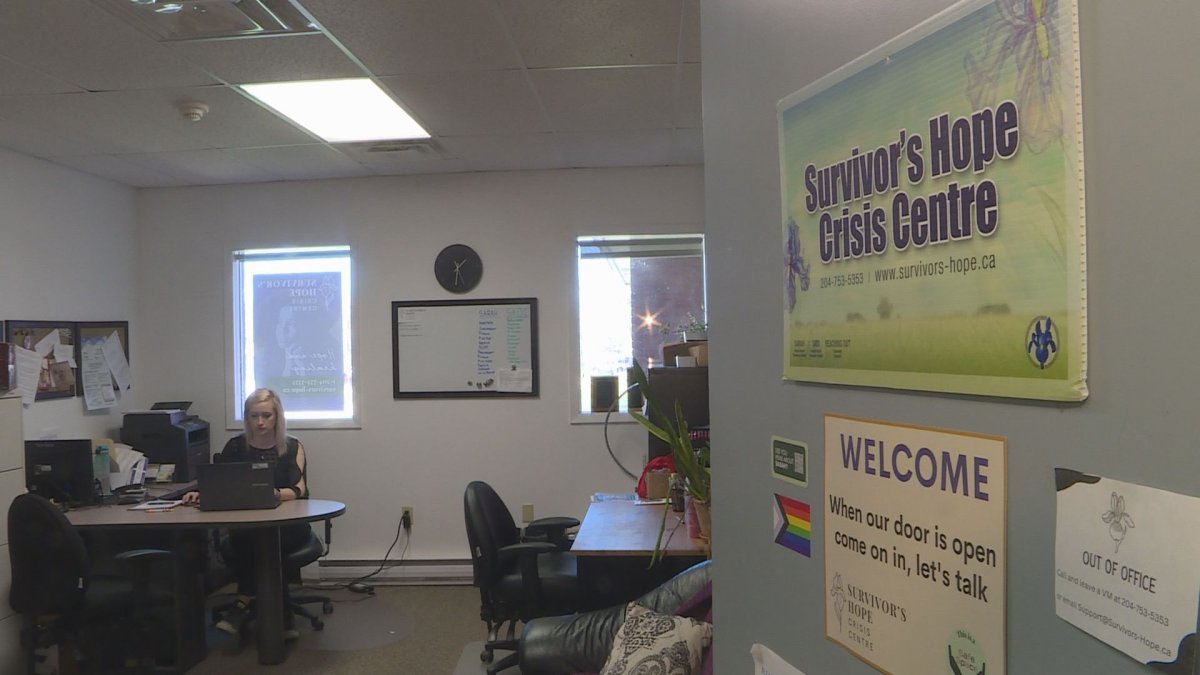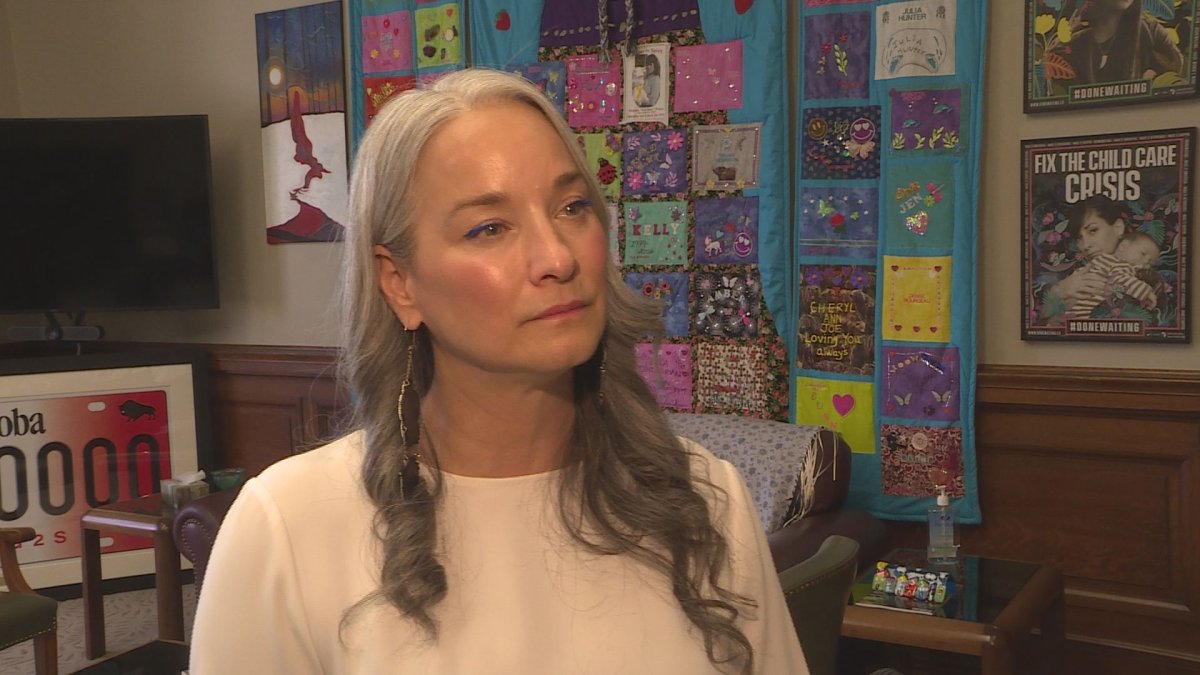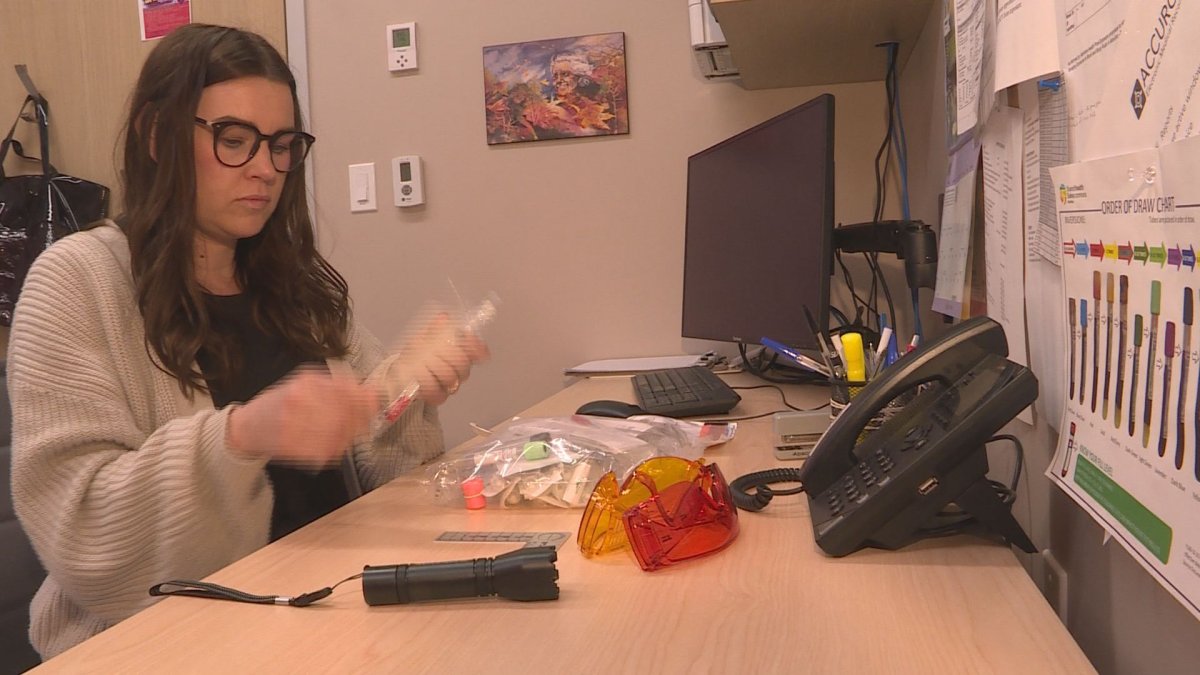The impact of sexual violence in Manitoba is something Coral Kendal witnesses everyday.

Kendal is the executive director of Survivor’s Hope Crisis Centre, which provides support to survivors of sexual violence throughout the Interlake-Eastern region.
“The demand is huge for these services, it’s always huge,” Kendal said.
Survivor’s Hope Crisis Centre is based out of a small office in Pinawa, Man. The organization has seven staff that travel throughout a vast region of rural Manitoba, ensuring survivors who live in isolated areas don’t feel isolated from services and supports. The non-profit also has 21 volunteers that work in their sexual assault recovery and healing (SARAH) program, which provides 24-7 crisis support to those impacted by sexual violence.
“We find that just being able to go out in the community and build trust, (that) we are getting more disclosures,” Kendal said.
But Kendal says support is lacking in rural Manitoba, especially when it comes to things like forensic evidence collection after someone has experienced a sexual assault.
“That service is completely lacking in the Interlake-Eastern region right now,” Kendal said.
“And as much as our crisis program does a lot of emotional support and information providing to survivors that a SANE nurse might do in Winnipeg, we obviously don’t have the capacity to provide the nuances of providing a forensic kit. And we see that hospitals out here sometimes don’t have the confidence that comes with handling that sensitive evidence that comes with a forensic kit.”

Get breaking National news
It’s something the province is looking to address through developing a new strategy to better support sexual assault survivors in rural and north Manitoba. The strategy will include building upon Winnipeg’s sexual assault nurse examiner (SANE) program to extend those services into rural and northern Manitoba.
“It’s a step of ensuring Manitobans have access when they need it, but also where they need it,” Families minister Nahanni Fontaine told Global News, noting that the strategy is currently being developed and more details will be released in the coming months.
“We don’t want Manitobans to have to go through a myriad of different obstacles to be able to access care. And more particularly, having to go through all these obstacles in accessing care in respect to examinations to get justice. Manitobans deserve justice when they’ve been sexually assaulted.”
Inside city limits, numbers from the Winnipeg Police Service show that police-reported sexual assaults continue to rise.
In 2023, police responded to 877 reports of sexual assault. While that number decreased from a high of 952 calls in 2022; the 2023 numbers are still up significantly over the past five years, rising 5.7 per cent from 2018.
It’s a trend that’s unfortunately been experienced across much of the country, according to the Canadian Women’s Foundation.
“The rates are just far too high,” Andrea Gunraj, the vice president of public engagement with the Canadian Women’s Foundation told Global News.
“In Canada, one in two women experience some form of gender-based violence in their lifetimes, and one in four women experience some form of sexual violence in their lifetimes. And that is just an underestimated number because it is a very underreported crime.”
In addition to the SANE program at the Health Sciences Centre in Winnipeg, another six SANE nurses are working in the Hummingbird program at Klinic Community Health in the city’s West End neighbourhood, which publicly launched in January.
Ashley Stewart, the medical services coordinator of the Hummingbird program, says they mostly deal with people from Winnipeg, but have also had people from rural and northern Manitoba access their care and services.
“We’re seeing a significant number of people come forward after either a sexual assault or intimate partner violence, so we definitely have been quite busy,” Stewart said.
As for Kendal, she says the new provincial strategy will be welcomed, but how it’s implemented will play a large role in its efficacy.
“Our emergency rooms out here are not open 24-7, we don’t have full staffing. So there’s hesitancy on how reliable this program would be,” Kendal said.
“So I’m hoping its executed well when it finally gets off the ground, and that it’s able to build trust with those who need it where trust has previously been broken when they weren’t served the way they needed to be when they attended to the hospital. So there’s work to be done with building those relationships.”











Comments